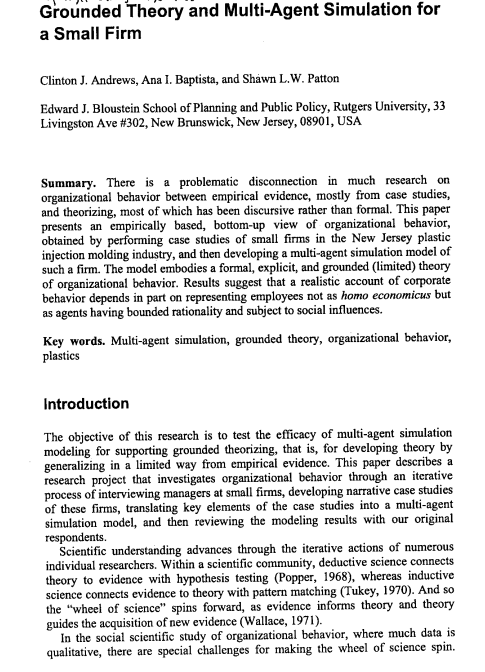There is a problematic disconnection in much research on organizational behavior between empirical evidence, mostly from case studies, and theorizing, most of which has been discursive rather than formal. This paper presents an empirically based, bottom-up view of organizational behavior, obtained by performing case studies of small firms in the New Jersey plastic injection molding industry, and then developing a multi-agent simulation model of such a firm. The model embodies a formal, explicitly, and grounded (limited) theory of organizational behavior. Results suggest that a realistic account of corporate behavior depends in part on representing employees not as homo economicus but as agents having bounded rationality and subject to social influences.
Grounded theory and multi-agent simulation for a small firm
Citation:
Clinton Andrews, Ana Baptista, Shawn Patton, “Grounded theory and multi-agent simulation for a small firm,” Ch. 16 in T. Terano, H. Kita, T. Kaneda, K. Arai, and H. Deguchi, eds.,Agent-Based Simulation: From Modeling Methodologies to Real-World Applications, Agent-Based Social Systems, Tokyo: Springer-Verlag, 2005, pp. 167-81.
